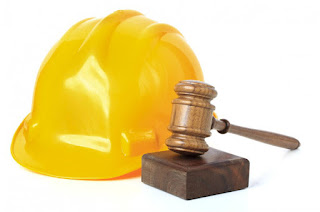There are various legal issues and problems in building and construction management at all the levels. Conflicts can arise at various levels of a project process and the team can get restless over that. Construction project managers are asked to resolve various kinds of disputes associated with the completion of the project. They are also responsible for identifying the issues as well as mitigating them by comprehending the legal ramifications.
How are Disputes Resolved?
Conflicts can arise at any level and and the project manager must handle it with all his might and skill. In order to keep the team productive, the manager controls the disputes and tries to solve them quickly. Potential conflicts could involve lack of clarity, limited resources, conflict of interest, power struggles and poor communication. While every issue is unique, there are certain common stratgies for resolution followed by all the project managers. Those strategies are:

- Mediation- This is a process in which a third party mediator is hired to resolve conflict between 2 parties. This strategy is less time consuming and also the cheapest. A negotiation specialist is required to resolve dispute and an experienced person creates a win-win situation for both the parties involved in the dispute.
- Mini-Trial- Mini-trial is held in an informal setting presided by an advisor or attorney. This attorney must be paid for this service. However, there is one problem with this arrangement; the agreement is non-binding and hence can be broken. It is more time consuming and expensive than a mediation or negotiation.
- Arbitration- The third and last process is that of arbitration. This is however, the most expensive and time-consuming strategy of resolving conflict. Each party is represented by an attorney along with witnesses and evidences. After hearing out both the sides, the arbitrator gives a ruling which is final and binding.
Devise a Risk Management Plan
Focus on the prevention is the mantra for solution. The managers who spend less time on spontaneous problems and more time on diminishing its impact, can actually control the problems and devise a fruitful risk management plan. This plan will help in managing the risks involved in the projects. It also helps in defining the role of project staff and recognize possible risks. The plan also lays out categories for problems and their impact on the project.
Comprehend the Legal Principles
Understanding of legal principles saves money as well as time. Project managers should know how to negotiate agreements, purchase insurance, deal with jurisdiction’s licensing needs and administer job site safety. There are patches of liability in construction management. For instance, the project could go overhead and the bid might exceed the estimates. Property development consultants will provide proper tips on how to solve issues with faulty workmanship. Normally, the policies do not even cover economic risks and hence the managers along with consultants should ensure the proper coverage that can avoid claims and liabilities.
Develop a Quality Control Plan
Developing a quality control plan ensures that the construction reaches a particular standard. Quality control is the last step during which the project is reviewed with the help of procedures and systems to maintain the highest standard. The consultants should also have knowledge regarding safety management codes, compliance codes, building codes and also incorporate these aspects within the plan.
All these steps are involved in the entire dispute resolution process which is managed by project managers with the help of property development consultants.
No comments:
Post a Comment